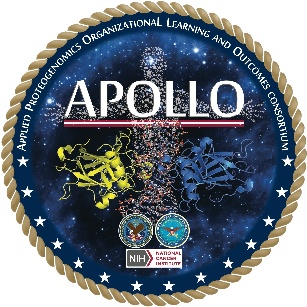 This collection contains subjects from the National Cancer Institute’s Applied Proteogenomics OrganizationaL Learning and Outcomes (APOLLO) network <disease here> cohort Esophageal Squamous Cell Carcinoma cohort. The APOLLO network is a collaboration between NCI, the Department of Defense (DoD), and the Department of Veterans Affairs (VA) to incorporate proteogenomics into patient care as a way of looking beyond the genome, to the activity and expression of the proteins that the genome encodes. The emerging field of proteogenomics aims to better predict how patients will respond to therapy by screening their tumors for both genetic abnormalities and protein information, an approach that has been made possible in recent years due to advances in proteomic technology. Radiology and pathology images from APOLLO patients are being collected and made publicly available by The Cancer Imaging Archive to enable researchers to investigate cancer phenotypes that may correlate to corresponding proteomic, genomic, and clinical data. This collection contains subjects from the National Cancer Institute’s Applied Proteogenomics OrganizationaL Learning and Outcomes (APOLLO) network <disease here> cohort Esophageal Squamous Cell Carcinoma cohort. The APOLLO network is a collaboration between NCI, the Department of Defense (DoD), and the Department of Veterans Affairs (VA) to incorporate proteogenomics into patient care as a way of looking beyond the genome, to the activity and expression of the proteins that the genome encodes. The emerging field of proteogenomics aims to better predict how patients will respond to therapy by screening their tumors for both genetic abnormalities and protein information, an approach that has been made possible in recent years due to advances in proteomic technology. Radiology and pathology images from APOLLO patients are being collected and made publicly available by The Cancer Imaging Archive to enable researchers to investigate cancer phenotypes that may correlate to corresponding proteomic, genomic, and clinical data.
Imaging from each cancer type will be contained in its own TCIA Collection, with the collection name "APOLLO-5-cancertype", and is being made available on a release schedule that is coordinated with the APOLLO program releases of proteomic and genomic data. Radiology imaging is collected from standard-of-care imaging performed on patients immediately before the pathological diagnosis, and from follow-up scans where available. For this reason, the radiology image data sets can be heterogeneous in terms of scanner modalities, manufacturers, and acquisition protocols. Pathology imaging is collected as part of the APOLLO qualification and laser capture microdissection (in some cases) workflow. Limited Access data is available only to members of the APOLLO network, and Publicly Available data may be under a limited publication embargo. | 